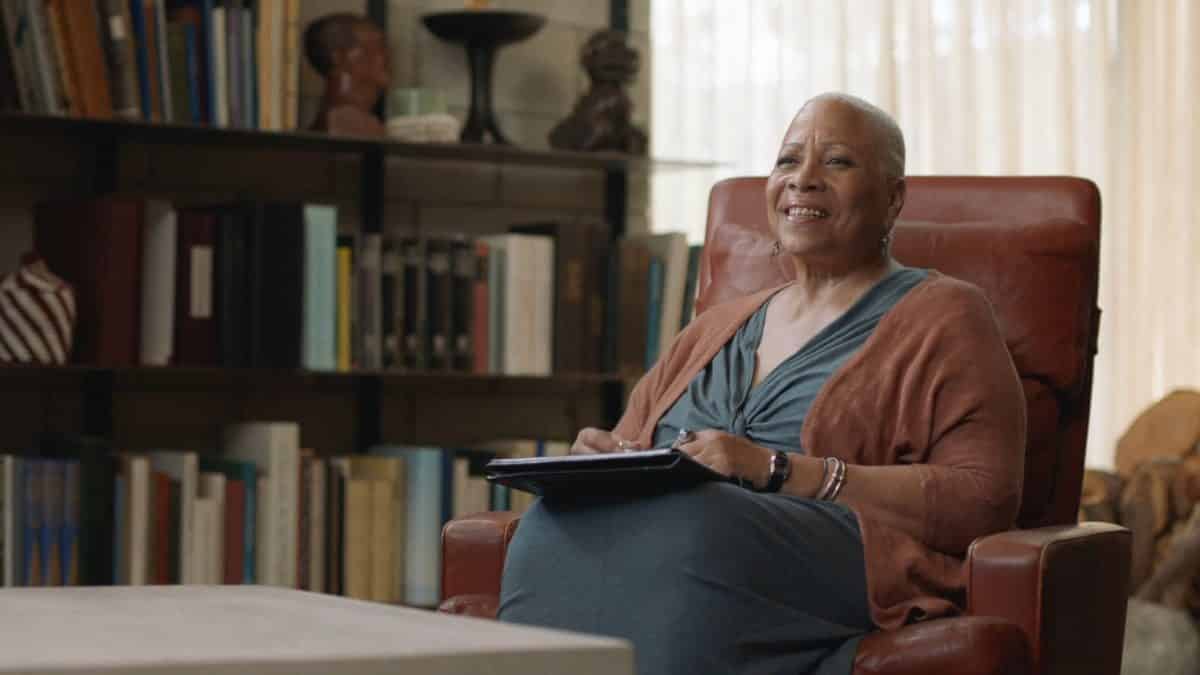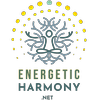Isn’t it time to disrupt the stigma of “therapy while Black?” Let’s bust myths, answer questions, and decide for ourselves.
The dust has settled on the last season of powerhouse Issa Rae’s Insecure. As a mental-emotional health advocate, and African American woman who actively transcends past trauma, I already miss this cultural game changer.
Unabashedly broaching topics like open Black marriages, societal expectations for Black people to answer every “Black” question, and the repercussions of being a “strong” Black woman, the hit dramedy was fresh and courageous.
But one key reason I’ll miss Insecure is how it normalized therapy for Black people.
The subtle way it introduces it is so true-to-life.
The show follows protagonist Issa Dee and best friend Molly’s tribulations as fallible, REAL Black women. The first time therapy becomes a plot point is Season 1, Episode 7, when Molly’s old friend Crystal resurfaces.
In a quick chat on a bridge, the former self-proclaimed “hot-ass mess” exuberantly tells Molly she’s doing ah-mazing: She’s joyful, “centered,” loving herself, and looking “effervescent.” (Aside from the confusingly stiff wig.)
What changed?
Crystal “fixed some things in her life” and started seeing a therapist.

At first, neither Molly nor Issa are sold on it—unless we count each one distancing herself from the idea to sell it to the other. 🙄
But by the start of next season, Molly decides to give this therapy thing a shot… although she’s still in full-on “defense mode.”
Sitting across from her therapist, Molly—closed-off and still obviously skeptical—curtly describes everything and everyone in her life as “fine” and “good.” 😓
As the seasons progress though, we see Molly finding value in therapy. And we’re allowed behind the veil of other Black characters’ mental-emotional hardships—like Tiffany’s postpartum depression and Nathan’s bipolar diagnosis.
And there’s no sensationalism to be found anywhere.
Insecure broaches these topics in a gentle, authentic way that helps normalize mental health for “us” as humans in Black and Brown bodies. It has honest conversations about mental wellness without it ever feeling preachy.
And without stigmatizing the characters for going through “regular life shit.”
It’s crucial for Black people to protect our mental.
Black and Brown people face traumatic experiences daily. From microaggressions, to career-based code switching, to being portrayed negatively in the media on a regular, shit stays real. And all of this stress and negativity takes its toll.
No, literally.
Prolonged stress is toxic to our health, keeping us in a high-alert “survival mode” intended to be temporary. This “fight or flight” mode is designed to activate just long enough to get us out of harm’s way.
So what happens when high stress is a lifelong condition?
Health erodes. Rational thinking, empathy, memory, and more start shutting down to funnel our energy to, well, literally surviving.
We start having problems with sleep, digestion, immunity, and numerous other crucial functions.
Another important reason to prioritize Black psychological wellness is that it’s constantly under attack. Necessarily, the healing process looks different when trauma is ongoing. We need to stay ahead of the game.
A therapist can help determine recovery strategies to use when we can’t distance from our stressors, like—oh, I don’t know—recurring maltreatment based on race, sex, or orientation.
As season 5 unfolds, we see Molly finally starting to enjoy life and realize what’s important. She herself seems more calm, grounded, and centered as she figures out how to focus on “Molly.”
“Am I ‘stressed enough’ to need therapy?”
Actually, therapy isn’t just for navigating crises. It can be useful proactively when planning for the future. Even still, a lot of us wait ’til we’re in crisis or already burnt out.
So how do you know if you’re stressed “enough” for therapy?
This can be a tricky question.
For instance, I didn’t think I experienced significant stress. Sure, certain people and circumstances “got on my nerves” a lot occasionally. But on a day to day? I felt like I was fine.
It wasn’t until consulting with a holistic herbalist that I uncovered the truth.
During a first appointment for a chronic health challenge, she asked about my stress level.
“Not too bad,” I told her. “I don’t experience much.”
Fortunately, she didn’t stop there.
“On a scale of 1 to 10, what’s day-to-day stress like?”
I pondered.
I grew more concerned as I shared the answer:
“Well honestly… it’s at 7 most days. On some days, an 8.”
I discovered I was living in a high-stress state. I just didn’t realize it.
Product of a “rough childhood,” that’s just how life had been for me, as long as I could remember.
My past, coupled with constant media portrayal of “SBPS”—Strong Black Person Syndrome—had me completely blind to the fact that I was living under chronic toxic stress. At consistently health-damaging levels.
“How can I tell if I can benefit from therapy?”
Are you happy, as a rule? (Not just “okay,” but truly happy.)
Do you have strong social support you can call on when needed?
Do you feel fulfilled and purposeful in career or school?
Any nagging health concerns needing attention?
If any of those present a recurring challenge, a connected psychotherapist could help.
According to the National Institute of Mental Health, if you’ve been experiencing any of these for 2+ weeks, it’s definitely time to consider a mental health professional for support to feel better:
- Difficulty sleeping
- Appetite changes that result in unwanted weight changes
- Struggling to get out of bed in the morning because of mood
- Difficulty concentrating
- Loss of interest in things you usually find enjoyable
- Feeling unable to perform usual daily functions and responsibilities
- Thoughts of death or self-harm
If you feel challenged by any of these, or if you’re struggling with active mental health conditions, find a licensed mental health professional below.
“Therapy costs more than I want to spend.”
Thanks to online therapy and the Black Lives Matter movement, there are lots of affordable options cropping up all the time. We don’t even have to leave the house.
For example, Open Path Psychotherapy Collective only requires a $59 lifetime fee and between $30 to $60 per live therapy session. (It’s up to $80 per couples’ therapy session, depending on individual therapist rates.)
Also, a “self study” therapeutic coaching program may be an alternative to licensed therapists. With these, you can learn therapeutic tools without rehashing rough times with a human. (Yet or at all.)
Here’s a curated list of free, therapeutic coaching programs:
🢒 iPrevail: An online, free CBT (Cognitive Behavioral Therapy) program offering live (message system-based) coaching, lessons on how thoughts, emotions, & behaviors work, and online support groups. A study on iPrevail showed veterans with mild-to-moderate PTSD symptoms reported significant improvements after going through the online wellness program.
🢒 Bliss Online Therapy: A free, 8-session “interactive therapy program” by Centre for Interactive Mental Health Solutions in Canada. It’s designed to complete independently without connecting to any live, human counselors.
🢒 MindTrials: A free program designed by the Nat’l Institute of Mental Health. It’s designed to help people think in a more positive, healthy way about situations that make them anxious. Also designed to complete independently.
Just know these programs typically operate with volunteers, most of which have no formal coach training or certifications. They’re often called peer-to-peer coaching programs, as in the volunteer is “trained” on how to interact with “clients” (by reading training materials).
So technically, these “coaches” are often actually “trained listeners” with no formal mental health or wellness training or credentials.
“My therapist won’t understand my struggle.”
The Internet has put practitioners from all walks of life at our literal fingertips. This means it’s easier to find counselors that share our cultural background, orientation, sex/gender, and religious beliefs.
We can also search therapists by specialty, location, and more. (Note, in the U.S., therapists/counselors must be licensed in the same state as the client.)
Here’s a curated list of quality places to start:
🢒 Therapy for Black Men: Breaking the stigma that asking for help is a sign of weakness, offers hundreds of therapists and dozens of coaches ready to serve Black men.
🢒 BEAM Black Virtual Wellness Directory: Can find psychotherapists, but also reiki practitioners, meditation teachers, sound healing, life coaches, yoga teachers, and more. Sort by modality, state, and more here.
🢒 InnoPsych: Search by more ethnic backgrounds than Black, also including African, Caribbean/West Indian, Multiracial, Native American, and others.
🢒 Inclusive Therapists: Serving the needs of Black, Indigenous, and People of Color (BI&POC) and the 2SLGBTQIA+ community. Search by various filters, like therapist identity, spiritual or cultural knowledge, their approach/modality, and availability of sliding scale. Also offers a matching service where therapists will reach out to you.
🢒 Association of Black Psychologists – Therapist Resource Directory
🢒 Black Female Therapists Directory
🢒 Black Male Therapists Directory
“I can just talk to my family/pastor/friend.”
True, a strong social network is crucial to building solid mental-emotional health.
But depending on what we’re dealing with, it’s probably not enough. (These well-meaning connects also aren’t trained to avoid unintentionally harmful replies.) By contrast, therapists are professional listeners trained to treat people for emotional problems and mental illness.
However, if you’re still unsure about therapy and seeking to improve your present and future, a certified life, health, or wellness coach might be an option.
Note, while coaches can offer an empathetic ear (to a degree) and professional help with coping skills, unless they’re also licensed therapists, they’re not trained to help unpack the past. They’re also not good fits for significant psychological challenges.
Finally, “coaching” has a fairly loose meaning and is unregulated. So it can mean receiving nonjudgmental, encouraging peer support through chat (like at 7 Cups). Or it can mean a certified, accredited professional trained to help you reframe harmful behaviors and beliefs.
Basically, need to “vent and lament,” find meaning in, or understand your past? Therapy is the place.
But when you want to address the present (habits, patterns, behaviors) and future (goal setting and achievement), coaching can help.
Know what you’re looking for as you embark on your journey to find a skilled, qualified coach.
The Red Pill
Across five seasons, Insecure sells its characters on the idea that mental wellness is a natural, healthy part of the Black conversation.
In doing so, it subtly sells the most skeptical of viewers, too.
Caring for our mental-emotional health, particularly as Black humans, is still a radical idea. But the tide is turning. Don’t let society keep fooling you into believing seeking help means being “weak.”
This toxic thinking causes internal damage that further disrupts our right to feel joyful, passionate, and free.
We eat well and exercise to improve how we show up in the world physically.
Why not feed ourselves internally to improve how we show up, too?
You deserve to be happy—despite anything and everything going on in your life.
Now, pardon me as I go respond to my therapist…

Leave A Comment
You must be logged in to post a comment.